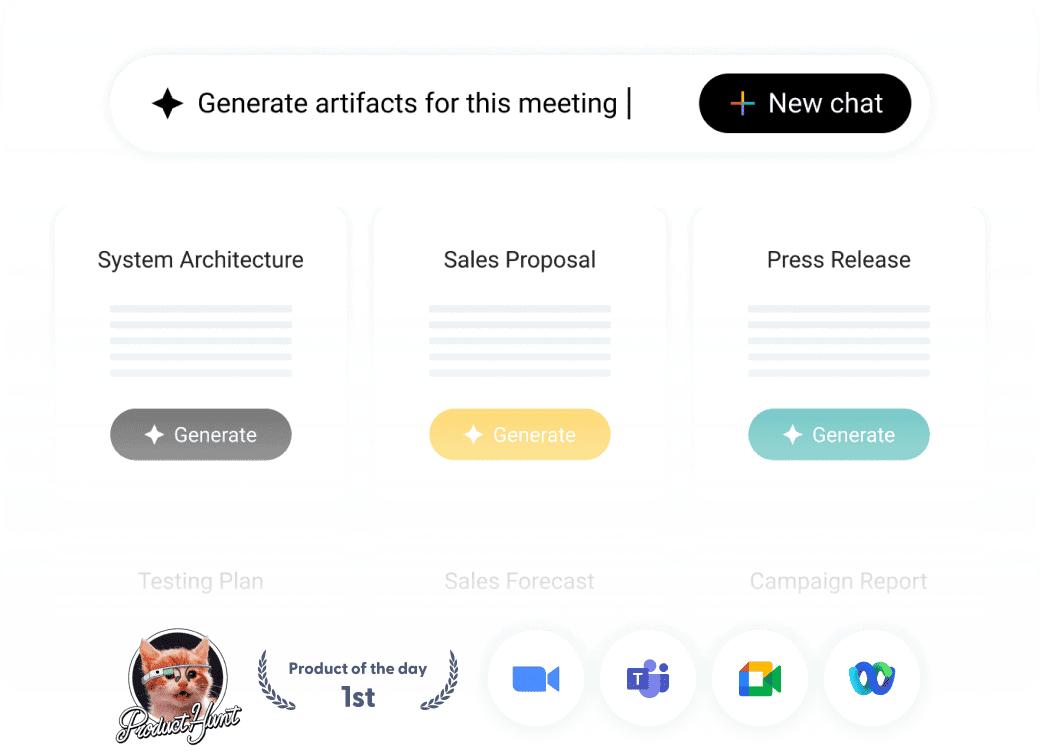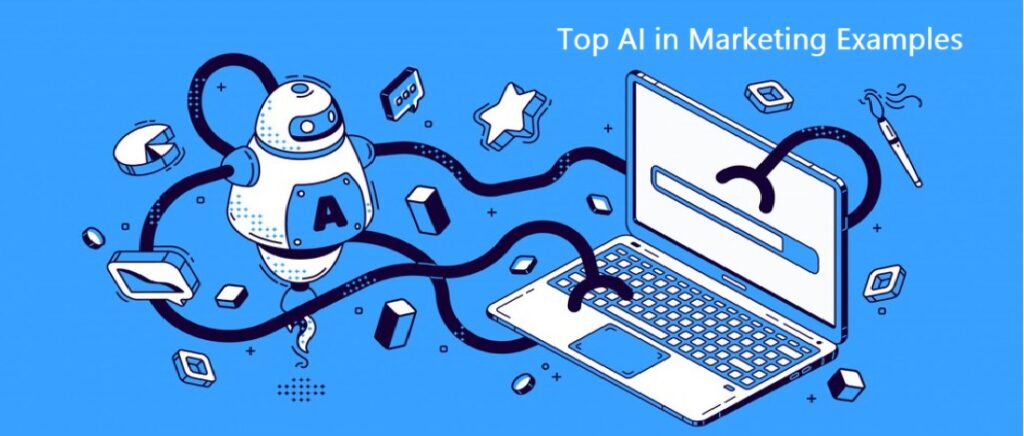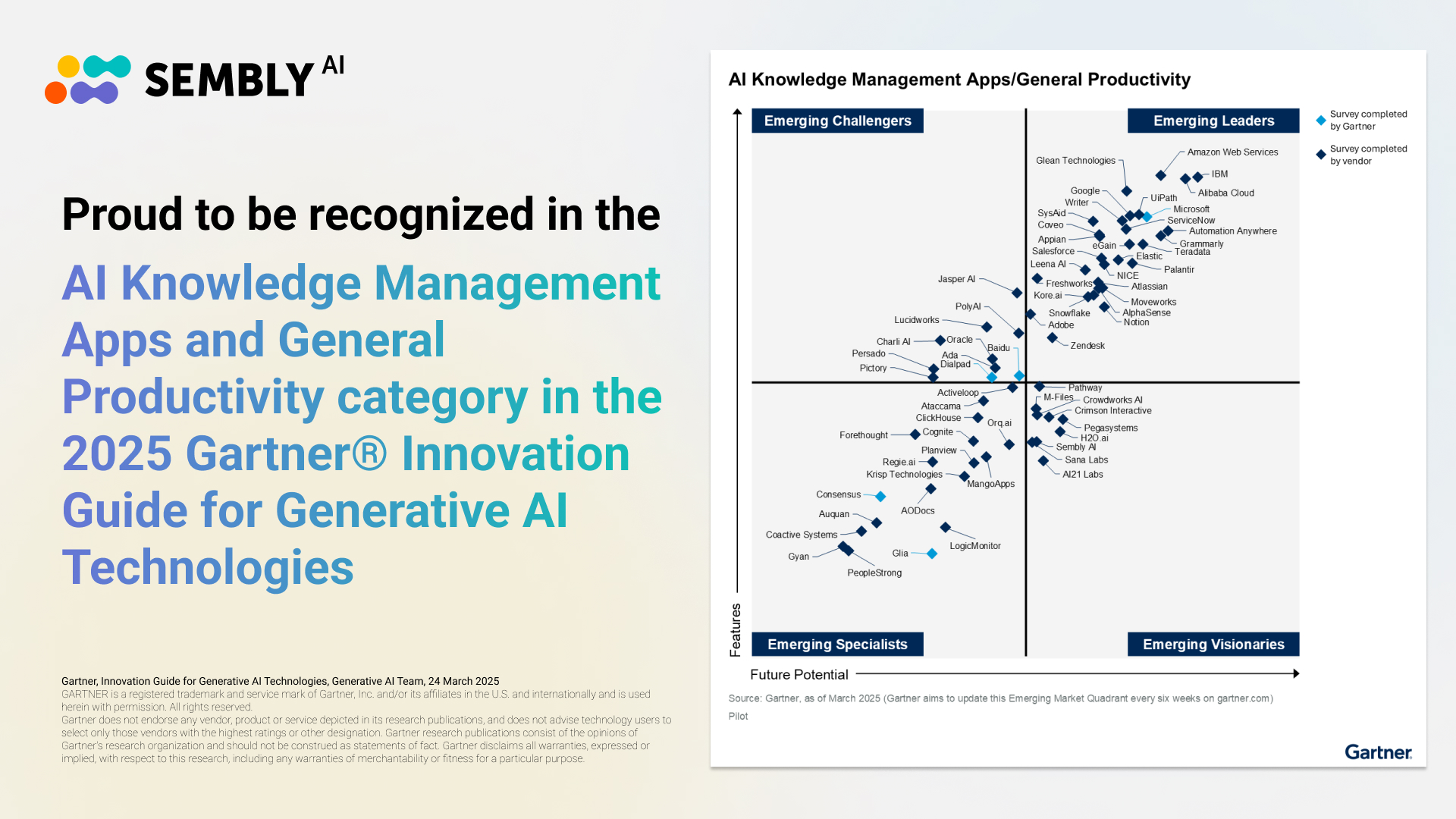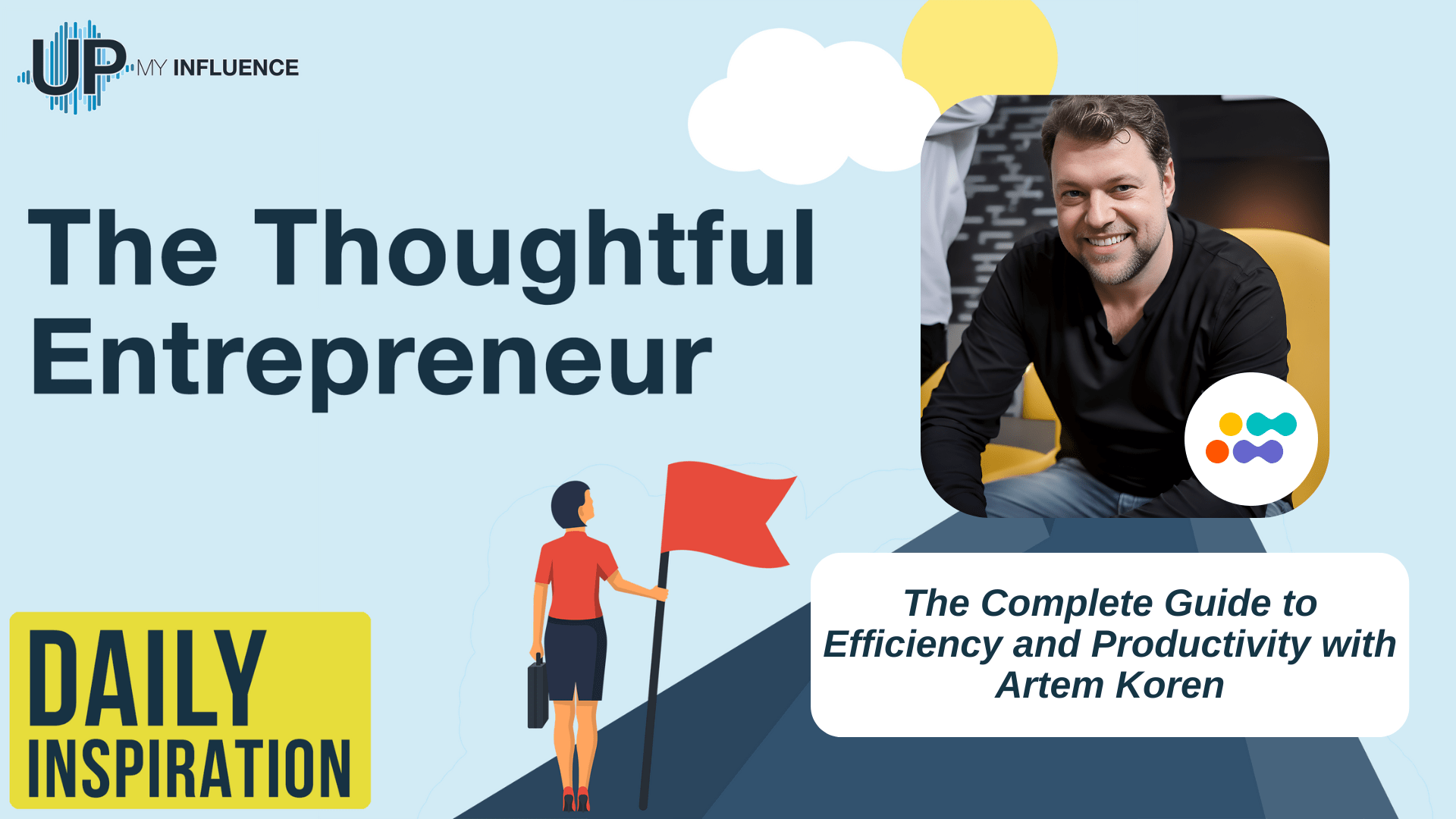Table of Contents
ToggleRecently updated on March 26th, 2025
Today, the world is witnessing the growing importance and use of Artificial Intelligence (AI) in the digital landscape. This software has enabled brands using AI for marketing to achieve previously unthought-of marketing goals such as level of efficiency, personalization, and customer insight. As a result, brands can now comprehend enormous datasets, recognize patterns, and put their marketing campaigns into action effectively. AI predictive analytics, marketing automation, and even creative campaign design are all broadening the scope of the business.
The question remains, ”How are companies using AI for marketing to reshape their digital marketing strategies?” This article dives into AI in marketing examples by studying successful use cases and real-world applications while also measuring their impact on customer engagement, operational efficacy, and ROI.
How AI Is Reshaping Modern Marketing Campaigns
Current and previous marketers have always focused their attention on connecting with the right audience at the right time. With AI, this concept is easier to achieve with the use of predictive capabilities, real-time analysis, and hyper-personalization.
Previously, marketers relied on historical data and a little guessing to get their effective marketing campaigns off the ground. Now, AI is capable of delivering actionable insights to ensure every campaign has a pragmatic end goal.
AI enables marketers to create plans that sharpen consumer expectations better and even anticipate customer actions. For example, AI allows brands to group audiences by browsing or purchasing history to ensure more relevant messaging reaches the target audience.
A fascinating statistic indicates that 76% of consumers are most likely to interact with brands that personalize their offerings. This is one of the reasons why brands using AI for marketing are growing rapidly. AI-powered tools such as chatbots, predictive analyses, and personalized recommendation engines have proved to be a cost-effective way to enhance customer satisfaction and increase profits at the same time.
It is evident that AI revolutionizes marketing by increasing the quality and precision of advertising, and enables cost-effective strategies. This is why we focus on ways in which specific AI tools aid marketers.
So, let’s outline areas where AI stands out.
AI in Personalized Marketing and Customer Engagement
Personalization is no longer a “nice-to-have” but a necessity. Generic campaigns that fail to connect with consumers on a personal level are often ignored. AI has transformed personalization by enabling brands to create marketing campaigns tailored to individual preferences, habits, and interests.
AI-powered personalization takes into account factors such as:
- Browsing behavior
- Purchase history
- Demographic details
- Time of engagement
This level of customization ensures consumers receive messages and offers that resonate with their specific needs.
Netflix’s AI-Powered Personalized Recommendations
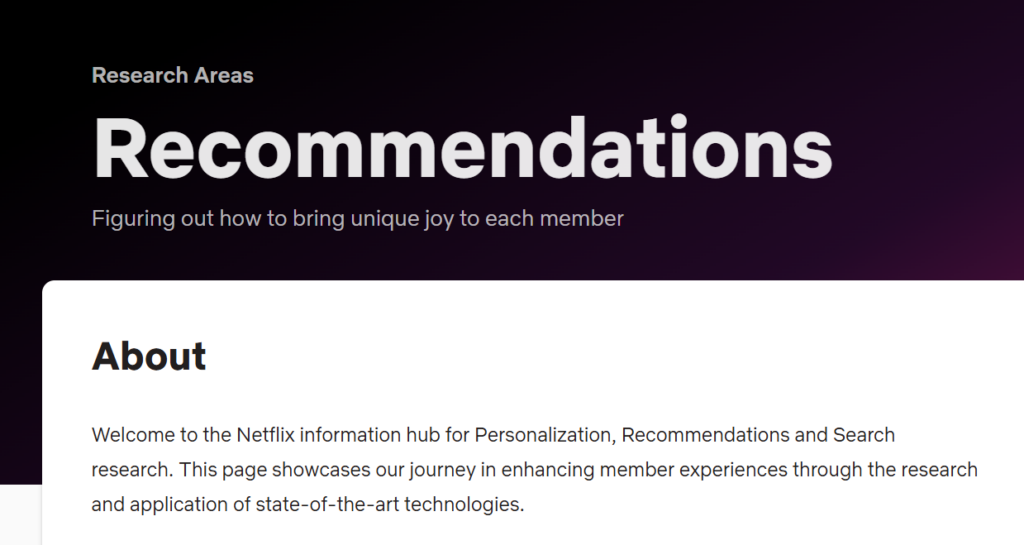
Netflix is a standout example of Artificial Intelligence in digital marketing examples that personalizes content on a massive scale. The billions of hours of streamed content each month means that Netflix has to use Artificial Intelligence algorithms to determine the most appealing shows and movies for each user. Such recommendations are not just tied to the genre of the movies or series but many other intricate aspects such as viewing habits, watch time, and how the user rated other shows and films.
Such precision keeps users engaged and contributes to Netflix’s exceptional customer retention rates. For other industries, similar AI-driven personalization tools are making significant impacts. For instance, Spotify uses AI to curate personalized playlists, while e-commerce giants like Amazon leverage AI for personalized product recommendations that increase purchase rates.
How can brands without Netflix-sized budgets adopt this strategy? Many AI platforms offer affordable solutions for personalized email campaigns, dynamic website content, and targeted advertisements.
AI for Marketing Automation and Campaign Optimization
From arranging social media posts to email marketing; marketing has a plethora of routine tasks that can be resource and time-draining. Fortunately, AI comes to the rescue as it automates hundreds of activities which means marketers can devote their attention towards creativity and strategy instead.
Automation tools that are powered by AI improve campaigns in real time. AI algorithms can analyze user data to identify the appropriate time to send emails, the type of content that grabs the most attention, and the platform that has the highest return on investment.
HubSpot’s AI for Smarter Lead Management
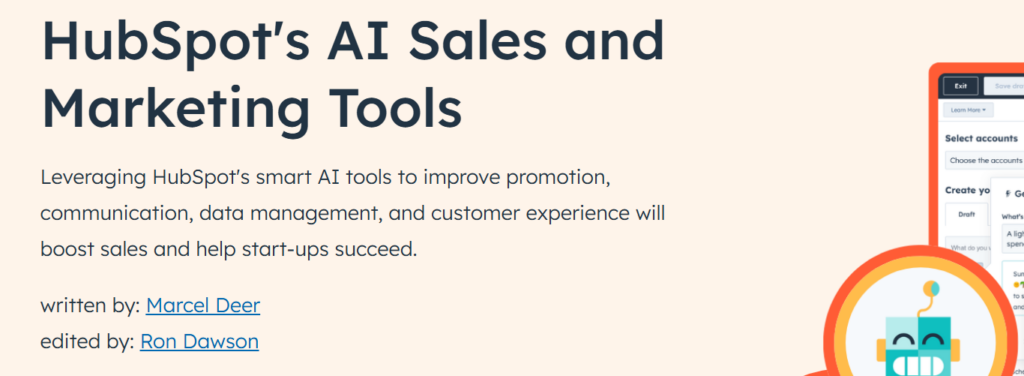
This in itself is one of the greatest AI in advertising examples – HubSpot’s AI-driven lead scoring system. HubSpot’s lead scoring system works by analyzing user activity and engagement and then assigning a score to all the leads. Such sales automation tools help salespeople focus on the leads that are most likely to convert and ensure that efficiency increases, as well as opportunities are not missed.
The impact of AI in campaign optimization is also evident in programmatic advertising. AI algorithms use Artificial Intelligence in programmatic advertising and examine vast amounts of data to figure out the when, where, and who to display ads to.
AI in Advertising Example and Creative Campaigns
At first glance, creativity and AI may appear to be a strange match, but they are slowly coming together to build innovative advertising campaigns. AI tools are great at studying data to find out what the audience prefers. Marketers utilize this insight to create effective ads that touch people’s emotions.
Coca-Cola’s Creative AI-Driven Campaigns With OpenAI

An illustrative example of AI’s use in advertising is Coca-Cola’s partnership with OpenAI. Coca-Cola tasked AI with creating ad variations and subsequently sampled AI ad versions across various demographics to determine which one yielded the highest engagement. In addition to being time efficient, this method is effective because the chances of the campaign becoming successful are very high.
Among other examples of AI in marketing is Heineken where AI was harnessed for its “The Candidate” campaign. The campaign was able to gauge the responses of the audience in real-time so its content could be modified mid-air to keep the audience’s attention.
The step towards incorporating AI to promote creativity is incredibly useful for brands using AI for marketing because it allows them to tap into both human creativity and the powers of data.
AI in Content Creation and Curation
Content marketing remains the backbone of marketing, driving engagement, brand reputation, and trust within the audience. That said, maintaining a steady pipeline of content that is not only high in quality but is created with deep focus is resource-heavy. This is where AI is revolutionizing the process, allowing marketing teams to produce, optimize, and curate limitless content while saving them resources.
AI tools are changing the game when it comes to content and everything related to it: from ideation to the final product. They greatly help marketers by analyzing countless data, such as trending topics, audience interests, and keyword performance.
Grammarly’s AI Tools for High-Quality Content Creation

Grammarly is capable of providing great support for marketers by utilizing AI technology in the form of language processing. The platform provides great assistance with grammar, tone, and audience-specific lexis.
This is one of the prime examples of AI in marketing, particularly for small-sized businesses with no dedicated editorial departments. With the assistance of Grammarly’s AI, maintaining consistent brand communication becomes an easy and simple task across multiple channels.
With the rise of AI-powered tools like Grammarly, marketers will be able to generate blog posts, advertisement content, and even complete email campaigns within a matter of minutes, making the process of content creation free from hassle.
AI in Social Media Marketing
Marketing on social media never gives you a break, constantly requiring engagement and a thorough understanding of the audience’s needs. Instagram, Facebook, TikTok, Twitter: these are all at the core of how brands interact with their clients.
But, big international brands sometimes find it difficult to do this efficiently. That’s why AI comes in. From automating repetitive tasks, analyzing user behavior, and even creating custom user experiences, AI helps brands maintain a consistent presence while optimizing their efforts.
AI tools are changing the game with social media strategies in the following ways:
- First, marketing platforms like AI-powered tools like Hootsuite and Buffer analyze user engagement metrics to recommend the optimal time for posting, even suggesting topics tailored to the specific audience.
- Further, AI-driven tools like Sprout Social or Brandwatch can help monitor what users are saying, which trends are driving posts, and recommend how brands can effectively engage in relevant discussions.
- Finally, AI tools can scan the comments and posts of users to understand the overall attitude of people, helping people gauge whether brands need to react to address negative comments or capitalize on positive trends.
Sephora’s AI-Powered Chatbot for Social Engagement and Customer Support
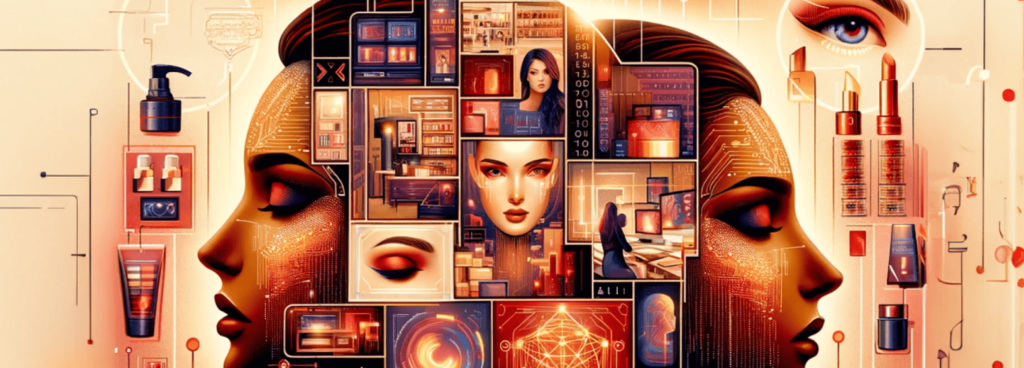
Sephora, as a brand that uses AI for marketing, has implemented chatbots on social media networks, including Facebook Messenger. These bots offer tailored product suggestions, respond to customer queries, and schedule consultations at their physical stores.
This is one of the good AI in marketing examples. By deploying AI in its marketing strategy, the brand ensures that it meets its customers’ expectations since over 70% of people want feedback from brands on social media to be immediate.
AI in E-Commerce Marketing
Today, few sectors boom as rapidly as e-commerce, yet it still faces significant challenges. Among them are managing large stocks, setting prices, and forecasting changes in client needs. These tasks are difficult and require creative approaches. Artificial Intelligence has already stepped in to support e-commerce and modern brands by providing real-time solutions to these issues and automating multi-level decision-making processes.
For instance, specific e-commerce AI sales tools can boost your productivity by forecasting sales, changes in seasons, and even weather patterns to ensure that inventory management is handled seamlessly. This means ensuring that the right stock is available which, subsequently, reduces the problems caused by overstocking or stockouts. Ultimately enhancing customer satisfaction and minimizing waste.
Another prominent feature of AI that is making waves in e-commerce is its use in dynamic pricing. AI assistants can monitor competitors’ pricing and customer behavior, and recommend changes accordingly. This progress in AI allows e-commerce companies that use AI for marketing to perform better than their rivals and significantly improves profitability.
AI further improves customer service by creating tailored suggestions. Using smart algorithms, platforms can analyze browser histories, buying activities, and custom preferences to suggest products for every single shopper. This fosters a more personalized and engaging shopping experience, enhancing client retention, and elevating average order values.
Additionally, conversational AI such as virtual assistants and chatbots are providing improved customer assistance, helping clients browse through sites, search for items, or resolve issues quickly. These solutions ensure a smoother shopping journey and reduce cart abandonment rates, even during peak traffic periods.
Walmart’s AI for Predictive Inventory and Pricing
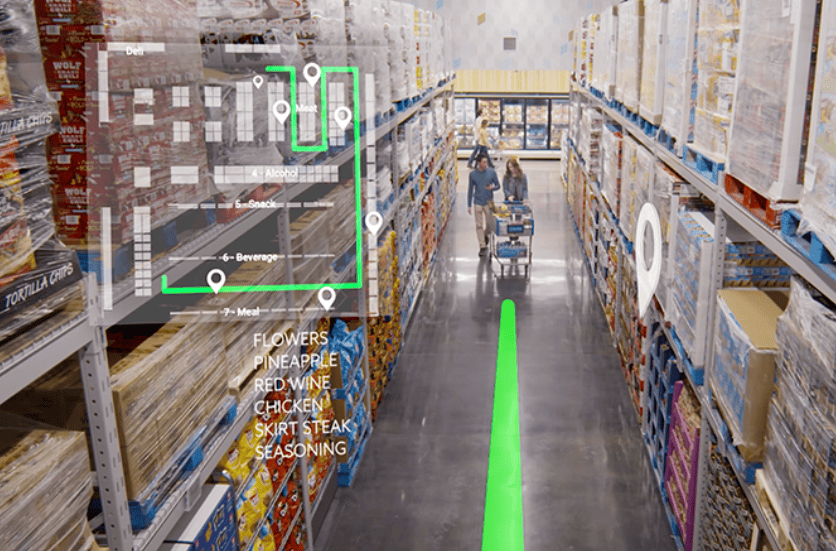
To determine the necessary stock, Walmart’s AI system monitors customer purchases alongside seasonality trends, and other external factors (like climate, for example). This one of Artificial Intelligence in marketing examples empowers Walmart to stock the right products at the right time, reducing waste and improving customer satisfaction.
Moreover, AI-powered dynamic pricing algorithms make sure that the company stays relevant by constantly adjusting the pricing. This strategy has greatly enhanced the performance and revenues of Walmart.
AI for Predictive Analytics and Customer Insights
AI is particularly effective in analyzing vast amounts of data and converting it into actionable insights. This assists companies using AI for marketing in predicting customer actions, adjusting their plans, and making business decisions based on facts rather than sentiments. AI algorithms are particularly useful in sifting through historical data to spot patterns or trends that even the best human analysts might overlook, thus enabling brands to work proactively rather than reactively.
Predictive analytics has numerous advantages, including understanding the customer journey, forecasting sales, and even retention rates. Companies can, for example, determine which products are likely to do well in particular seasons or which customers will buy the most during specific months. This enables brands to design highly effective outbound marketing plans, allocate resources optimally, and enhance productivity.
Predictive analytics is also crucial in keeping the customer churn rate low. For example, engagement with a brand can drop, and missed payments are all signals customers may be at risk. AI can pinpoint customers that might be at risk. Marketers can then step in with special discounts or personalized follow-ups and any other retention strategies to help tip the scale in their favor.
The broad impact of predictive analytics:
Sales forecasting: AI helps brands figure out revenues they are likely to earn in the future which helps them plan their marketing budget as well as inventory.
Customer segmentation: AI divides customers into clusters based on preferences and behaviors which, in turn, improves marketing endeavors by ensuring increased relevance.
Enhanced innovation of products: Employing AI technologies assists businesses in spotting unfulfilled needs in the market so as to create relevant products for consumers.
Volkswagen’s AI for Predicting Customer Buying Behavior
In order to develop targeted marketing strategies and promotions, Volkswagen studies custom purchasing behavior by evaluating online search histories, social media activity, and past purchase data.
Here is one of AI in marketing examples: a predictive AI system can determine when a client intends to switch their car, and, subsequently, Volkswagen can provide timely promotion. This striking example of AI in marketing depicts its potential for increased conversion rates.
AI in Customer Support and Engagement
AI within customer engagement and support has moved a long way from simple chatbots to now enlisting advanced voice assistants, virtual agents, and predictive service tools. These tools allow companies to be more efficient in how they provide support services and, at the same time, cut down on the costs associated with them. With the help of AI, brands are now able to address customer issues quickly and generally improve audience engagement.
AI-enabled customer support systems are designed to satisfy customer needs 24/7, which means no matter when a customer reaches out for help, be it during peak hours, or even when different time zones are in play, systems will be able to provide a response almost instantly. Furthermore, AI systems can go through customer interactions and pick out the common issues, and thus, help alleviate recurring issues.
AI is capable of solving problems proactively before they arise. AI enables predictive service tools to keep an eye on product activity, spot potential problems (such as issues with subscription renewals or expired warranties), and notify clients beforehand. This enables companies using AI for marketing to reduce frustration and encourage increased loyalty from customers.
Sephora’s AI Chatbot for Personalized Support
Sephora chatbot is not limited to only responding to queries. Skincare customers who use the bot receive an in-depth analysis of their purchase history and skincare goals to provide a customized solution approach. This AI in marketing example demonstrates how AI is capable of building loyalty in marketing by making the clientele feel heard and valued.
The Future of AI in Marketing
As technology continues to grow, the future of AI in marketing promises to be more exciting than ever, bringing more and more effective AI advertising examples. AI is becoming a crucial part of the marketing industry for its integral role in developing innovative strategies where personalization, efficiency, and customer satisfaction are prioritized. The ways in which AI disrupts the marketing industry will only grow alongside advancements in technology.
Generative AI Tools Will Revolutionize Creative Content
AI tools like ChatGPT or its alternatives are only scratching the surface of what AI is capable of. Soon, marketers will start using such tools to automatically generate ad copy, design graphics, and even create video content specific to certain audiences. This will make content production faster without sacrificing creativity and relevance.
Imagine developing a campaign in which visuals, tag lines, and even dynamic video commercials are produced in a matter of minutes. This will not only save time but also make it easier to tune campaigns so that they resonate deeply with the target audience.
Hyper-Personalization Will Become Standard
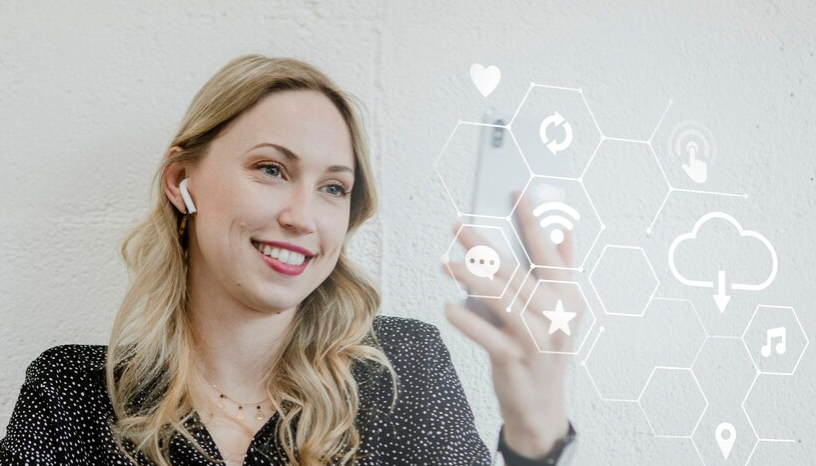
Building on the foundation of instant responses, personalization is at the heart of marketing AI. The future, however, will see it plunging to new heights. Infinite possibilities in AI can retrieve data from various channels like social media, purchase lists, location, and even biometric data alongside real-time data, so customized customer experiences can be formed.
For instance, retail apps could harness mood-driven wearable technology which uses a customer’s mood to recommend relevant products. These recommendations paired with AI will allow effortless hyper-personalization at a scale where trust can be built.
Voice and Visual Search Will Reshape Consumer Behavior
Using voice assistants such as Alexa or Google is a common practice now among customers, an AI will adjust itself to optimize searches for voice marketing. Additionally, using pictures instead of words to search for products will become mainstream, too.
For marketers, this creates a reality where campaigns can be conducted with conversational keywords while also having their visually rich product catalogs designed vividly for convenience. Merchants or companies that use AI for marketing or adapt earlier to these technologies will be at the top, as their brands can be searched through advanced methods without difficulties.
AI and Blockchain Will Enhance Transparency in Marketing
Digital ads will be restructured using Artificial Intelligence combined with Blockchain. AI will boost transparency in marketing and advertising, while blockchain will help cut costs while combating fraud. AI will also evaluate the ads in real-time, making hacks more controllable for marketers.
This enables brands and consumers to trust one another since both parties are voicing for better security around the data used. Marketers can use this to their advantage by displaying ethical practices surrounding the data used and the value of campaigns created to strengthen relations with their target audiences.
Sustainability Will Become a Key AI Integration
Given that sustainability is something that worries consumers the most at this time, AI will be instrumental in enabling brands to go green. AI tools can assess supply chains, reduce waste generated by marketing materials, and determine the impact of campaigns on the environment.
For example, AI could target advertising with a lower carbon footprint or optimize the logistics of advertising physical products. Implementation of AI is likely to appeal to ethical-savvy consumers by helping brands stand out in highly competitive markets.
Unlock the Power of AI in Marketing
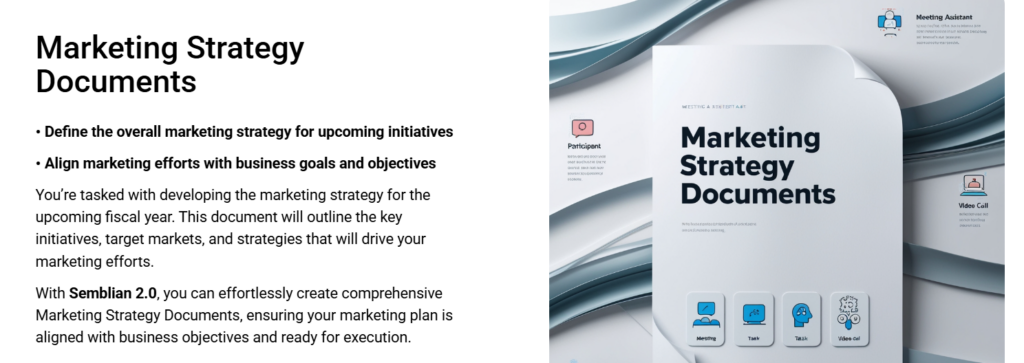
A good marketing effort starts with the right tools. Start with Sembly, an AI-powered platform that helps businesses make use of AI in creating their marketing strategies. It does not stop there, utilize AI to write marketing content, evaluate possible gaps in your strategy as well as create reports for your marketing team.
Don’t wait and start now — integrate AI into the marketing strategy.
FAQs
What is AI in marketing?
AI in marketing involves incorporating Artificial Intelligence tools to improve and perfect marketing operations. This entails the use of technologies such as machine learning, deep learning, search engine optimization, natural language processing, and predictive analytics to study data, automate processes, and achieve individualized customer service. AI helps marketers expand and analyze large datasets, increasing operational efficiency and producing more effective marketing materials for their audiences.
How does AI personalize marketing campaigns?
AI customizes marketing campaigns through a detailed examination of clients and prospects to determine their preferences and behavior. It applies algorithms in audience segmentation, predicting the next actions, and propelling them into content, suggestions, or offers. If we speak of Artificial Intelligence marketing examples, Netflix employs AI to recommend shows by monitoring what users watch, and e-commerce sites display products bought or browsed around the same time. This level of customization improves customer relations and loyalty.
What are the benefits of using AI in marketing?
AI has several advantages in marketing such as:
- Better productivity. Ad copywriting, email marketing, and ad servicing are just a few of the mundane tasks that can be boosted through automation and, consequently, resources saved.
- Improved personalization. Customization of products and services creates higher satisfaction and hence, better turnover.
- Data-driven insights. One of the key advantages of Artificial Intelligence is analyzing information databases in search of trends, making forecasts, and improving plans.
- Cost saving. By targeting the right audiences and improving campaign performance, AI reduces wasted ad spend.
- Scalability. Larger quantities of customer data and customer communications can be processed without a drop in quality.
Are there any risks associated with AI in marketing?
Despite all its advantages, it is hard to ignore the risks that AI brings to marketing:
- Data privacy. AI systems draw from vast amounts of data which raises serious concerns regarding consent, security, and regulation compliance such as the GDPR.
- Algorithmic unfairness. Poorly designed algorithms may unintentionally reinforce biases, leading to unfair/inaccurate targeting.
- Over automation. The use of AI with no human control may give rise to opportunities for engagement being overlooked.
- Cost of implementation. AI saves money in the long term, but many companies, particularly smaller ones, face challenges when trying to set up and integrate new technology.
Introducing Semblian 2.0
- ✦ Multi-Meeting Chats
- ✦ AI Insights
- ✦ AI Artifacts
